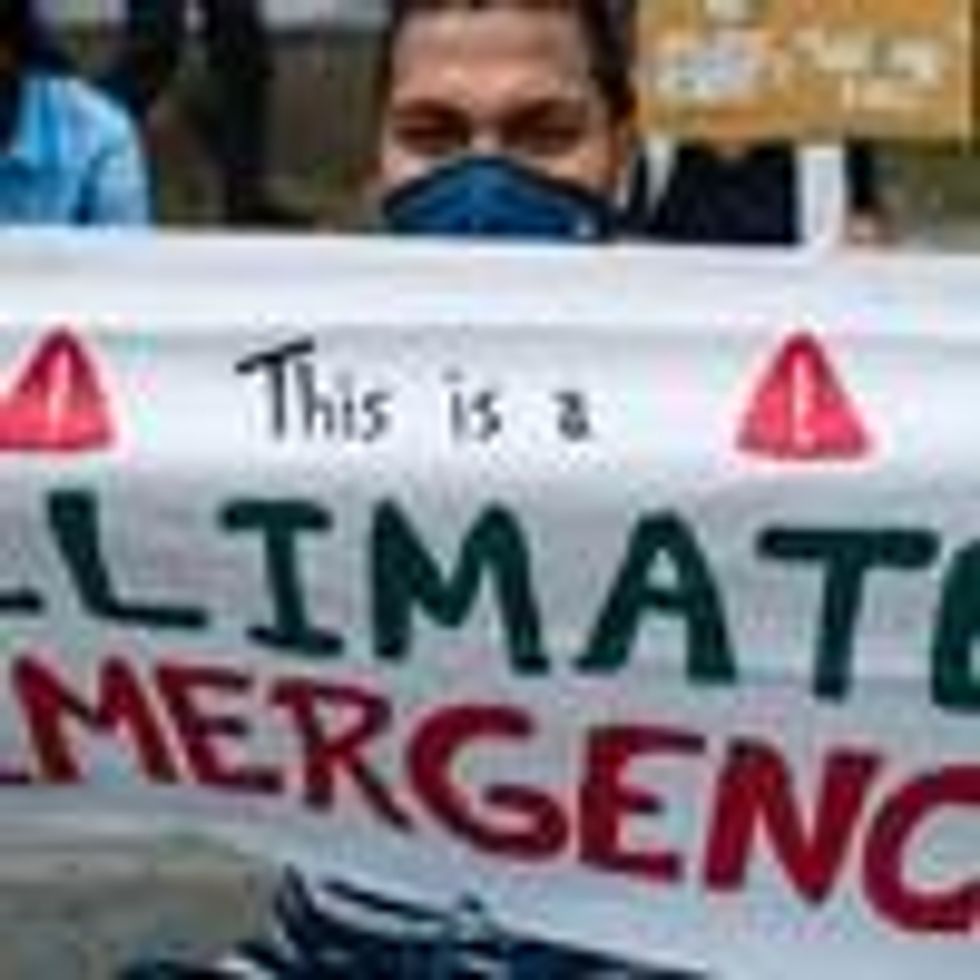Liberal Prime Minister Scott Morrison conceded defeat late Saturday night to Labor leader Anthony Albanese, a career politician who called himself the first candidate with a "non-Anglo-Celtic name" to ever run for the nation's highest office.
Albanese delivered a victory speech in which he first committed to the Uluru Statement From the Heart--a pro-Indigenous declaration--before vowing to "seek our common purpose and promote unity and not fear."
In stark contrast to the administration of fossil fuel champion Morrison, Albanese said that "together we can end the climate wars. Together we can take advantage of the opportunity for Australia to be a renewable energy superpower."
Amanda McKenzie, CEO of the research group the Climate Council, declared that the real winner in Saturday's election was climate action.
"Millions of Australians have put climate first," she said in a statement. "Now, it's time for a radical reset on how this great nation of ours acts upon the climate challenge."
With uncertainty over whether Labor would control the 76 seats needed to form a parliamentary majority--the party held 72 seats as of Saturday evening--Australian Greens leader Adam Bandt, who was re-elected in his Melbourne House district by more than 20 points over Labor challenger Keir Paterson, signaled his party is "willing to talk" with Albanese about a possible coalition.
"The Greens are on track for our best result ever," Bandt toldThe Guardian, which reports the party's primary vote has increased nationally by 1.9% to 12.3%. "People have backed the Greens in record numbers and delivered a massive mandate for action on climate and inequality."
"Today's the day we kick Scott Morrison out, and today's the day to change the government, and support for the Greens is growing," Bandt said Saturday morning.
"People are voting... to push the next government to go further and faster on climate, and also tackle the housing affordability crisis and get dental and mental health in Medicare," he added, a reference to Australia's publicly-funded healthcare insurance program.
Bandt toldThe Sydney Morning Herald that "with so many people switching to the Greens this election, the signs are that we will be in balance of power in the Senate, potentially in our own right."
There are currently nine Greens serving in the 76-member Senate and one in the 151-member House of Representatives.
Greens deputy leader Larissa Waters, a senator representing the northeastern state of Queensland--arguably the nation's most conservative--hailed Saturday's early results there as "looking very, very promising for a real greenslide."
"We have more people than ever flock to want to help us to campaign to win those seats," she told the Morning Herald. "In many... areas people have elected Greens at both other levels of government, and they really liked what they got and so it emboldened them to consider Greens federally as well."
After launching a massive grassroots get-out-the-vote campaign that hammered home the imperative of climate action amid devastating drought, heatwaves, wildfires, flooding, and destruction of the Great Barrier Reef, the Greens appeared likely to win three House seats in Queensland.
"We've just had three years of droughts and then fires and then floods and then floods again and people can see that this is happening," said Bandt. "I think increasingly what we're seeing is that that cuts across all voting persuasions, it cuts across all demographics--people know it's happening."
In a major power shift, architect Elizabeth Watson-Brown wrested control of the Liberal stronghold of Ryan in the western suburbs of Brisbane--Queensland's capital and the nation's third-largest city--from one-term incumbent Julian Simmonds after securing a swing of more than 10 points on preferences in Australia's ranked-choice system. The district had been held by the right-wing Liberal-National coalition since 1972.
"We are witnessing a tectonic shift in Australian politics," Watson-Brown told The Guardian, "and Queensland is leading the way."
In the key seat of central Brisbane, Stephen Bates was leading Liberal incumbent Trevor Evans by more than 10 points late Saturday.
Bates said he was inspired to enter politics while working in the United States, where he "experienced the consequences of a government that legislates people into poverty" and where he saw a colleague "crying because she had to make a decision--pay for her insulin or her rent."
"In this moment, a fire was lit inside of me and I knew I had to make sure this situation could never happen to anyone back home in Australia," he said.
In another key seat, Griffith, Max Chandler-Mather--who campaigned on a platform that includes tuition-free university, abolishing student loan debt, and building one million units of public housing-- was leading Liberal candidate Olivia Roberts and Labor incumbent Terri Butler.
"Let's be very clear, we are only just getting started," vowed Chandler-Mather. "Think about how far we've come and imagine were we can go over the next 10 to 15 years if we continue on this trajectory. The biggest asset that the political establishment has is low expectations. Well tonight, we raised those expectations."




